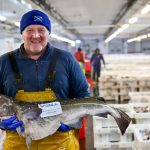It is fact that NAFO countries have disappointed the conservation organizations as they fall short to live up to their international commitments to protect the high seas. In 2006, they all agreed through a United Nations General Assembly resolution to conduct environmental impact assessments of deep-sea fishing and to protect deep-sea species and biodiversity.
There was also a compromise at UN for a moratorium on bottom trawling on the high seas. NAFO countries agreed they would assess the impacts of high seas bottom fishing by December 31st, 2008 or else stop fishing, according to the 2006 UN resolution. In 2008, NAFO countries themselves agreed to submit assessments for the 2009 fishery. They didn’t, and they still haven’t done.
Susanna Fuller of the Ecology Action Centre, an observer at the meeting, informed that without assessments, they won’t know what the impact of fishing will be nor can they manage bottom fisheries to ensure minimal impact on sensitive deep-sea ecosystems.
Commenting on its act NAFO agreed this week only to require impact assessments in areas that haven’t yet been fished. While a positive move, it effectively exempts all existing fisheries from having to demonstrate that they are not having adverse impacts on deep-sea ecosystems.
Matthew Gianni of the Deep Sea Conservation Coalition, said that they are disappointed with the European Union countries. The EU has the largest high seas bottom trawl fleet in the Northwest Atlantic and has repeatedly highlighted the importance of conducting impact assessments for deep-sea fisheries.








